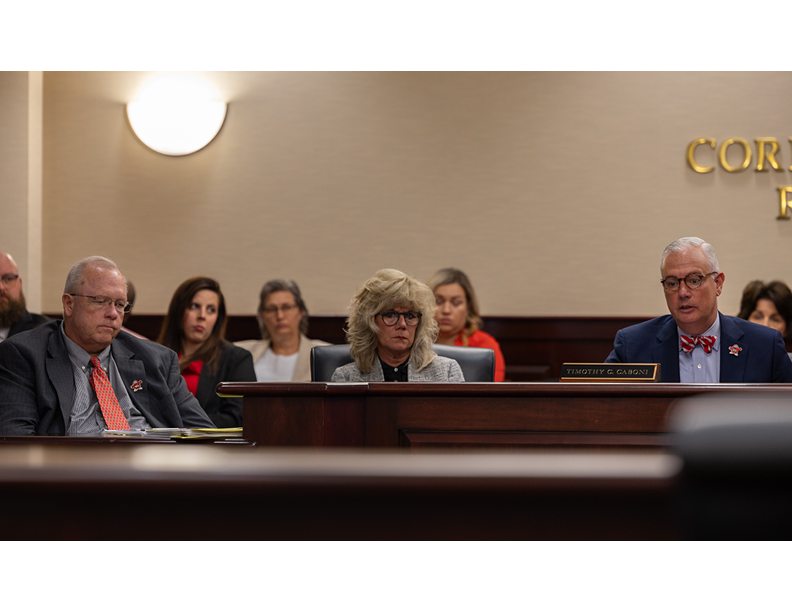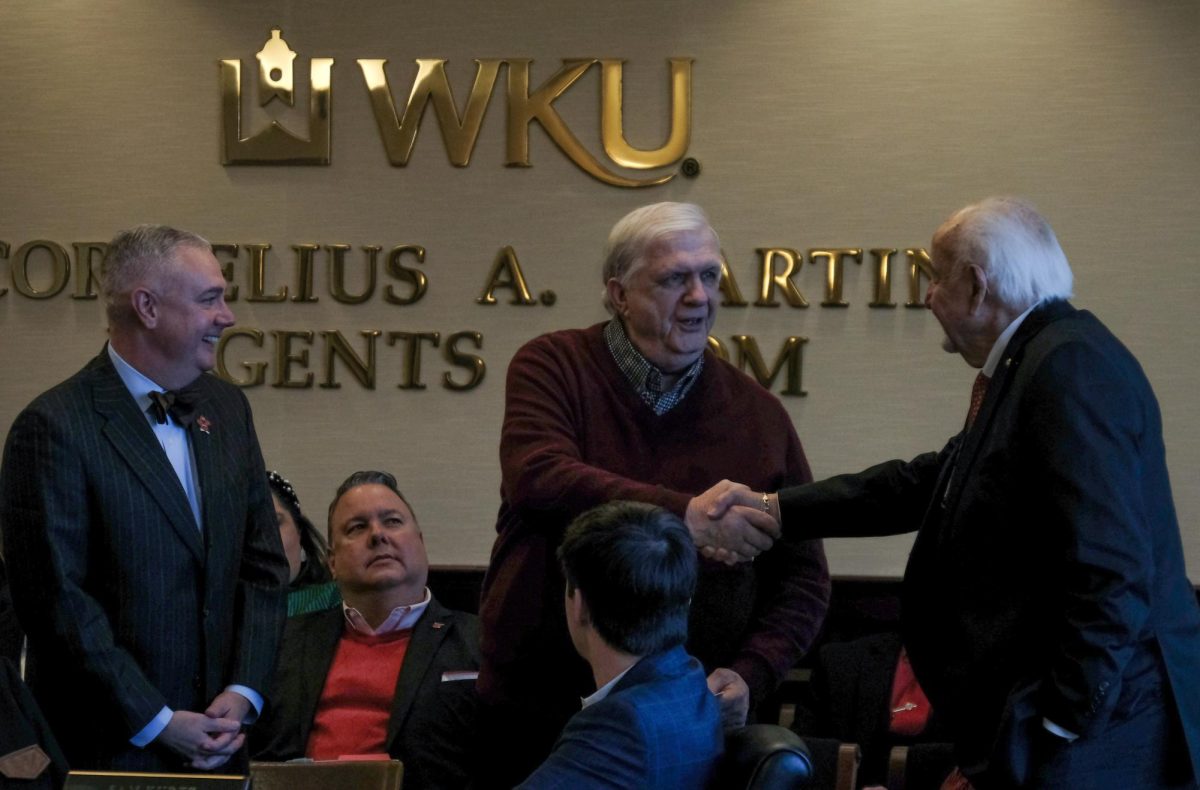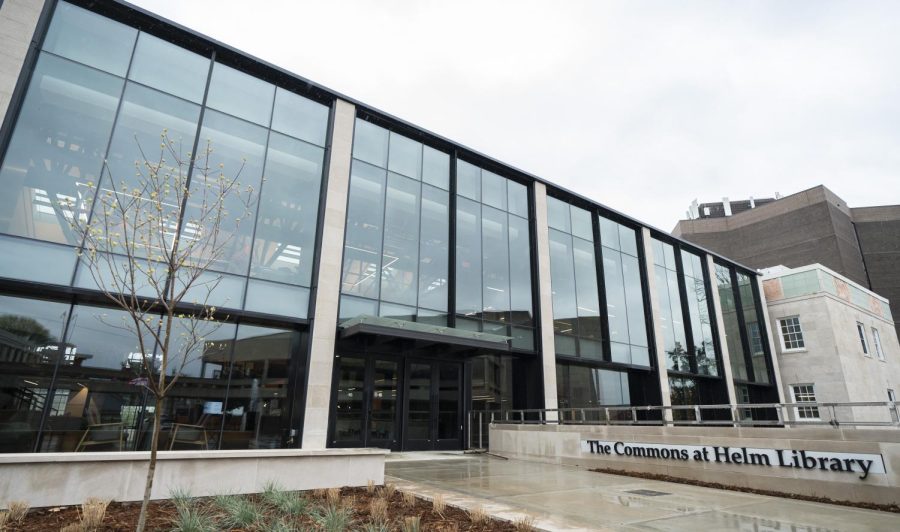In an 8-3 decision, the Board of Regents approved the 2024-2025 budget which sets a 92.5% budget spending target for campus units and implements a new 10% overhead fee on campus auxiliary and revenue-dependent units.
In their special meeting Friday, Regents were presented the proposed fiscal year 2025 budget of $394.2 million, 1% higher than in 2024. After an hour and a half of discussion on the budget, all three elected regents representing the campus community voted against its passage.
“I see a tough year on campus,” Faculty Regent Shane Spiller said before the vote.
Staff Regent David Brinkley and Student Regent Sam Kurtz also voted no.
The new budget plan includes a two-year $24 million “budget realignment strategy,” with $18 million of the plan to be addressed by a 7.5% unit realignment and 10% overhead charge for auxiliary and revenue-dependent units, Susan Howarth, executive vice president for strategy, operations and finance, told the regents. She said the remaining $6 million in budget realignment would be addressed in the 2025-2026 budget.
The strategy’s spending plan asks campus units to spend 7.5% less than their budget, or only spending 92.5% of their total budget. During 2023-2024, units were asked to spend 92% of their budget.
When asked by Spiller if the university will meet its target of spending only 92% for 2023-2024, Howarth said that, at the end of May, the university was $6 million better than it was in the previous year.
“Will we close it to zero, I can’t say that with certainty,” Howarth said. “I think we’ll come very close, and that was our goal.”
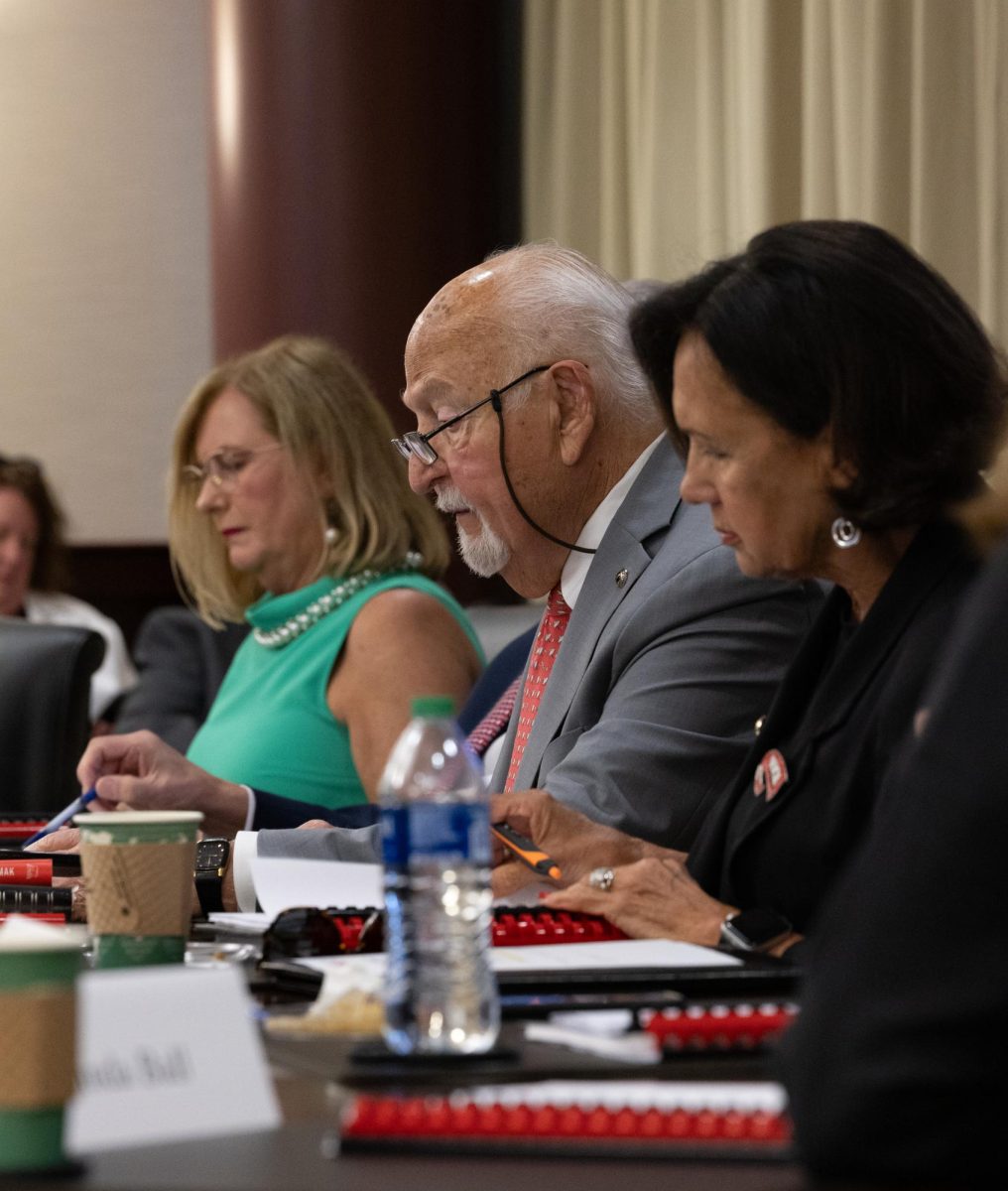
President Timothy Caboni addressed the decisions on the 7.5% spending reduction.
“We’re asking our deans to be conservative to ensure that we’re able to meet the goals of the institution by not overspending,” he said in a press briefing after the meeting.
Spiller expressed concerns over where those spending reductions would come from.
“I think we’ve been in a budget realignment, budget reduction, budget cut since 2010,” he said. “There’s not a whole lot of fat left.”
Later in the meeting, he pointed to staffing levels as an example.
“There’s some areas on campus I’m really worried about,” Spiller said. “We may be reaching some critical understaffing in areas.”
The budget seeks to address the university’s past issues of carry forward, a process where any remaining funds at the end of a budget period may be carried forward to the next period. WKU began using carry forward funds as “cash on hand to fill holes in the budget” in 2005, Caboni said.
“The decision that we made today essentially says we’re no longer going to use carry forward dollars and try to budget them as revenue, and we’re not going to fill holes with that,” Caboni said.“We’re going to eliminate that as a practice, and, for the university, that is a tremendous win going forward.”
The other component of the realignment strategy is a new 10% overhead charge for campus auxiliary and revenue-dependent units, which are departments that bring in revenue other than tuition, the budget report said.
These units use the university’s name, brand or services but do not pay the university directly for that use, Howarth said.
“That is something that’s new; it will take money out of academic and non-academic units on top of units that are non-academic that also are having 7.5% reduction off the E&G (education and general) indexes,” Brinkley said. “When we do the math on those, there could be a substantial amount that’s reduced.”
Brinkley shared concerns over some campus units continually overspending their budgets, while all units, including those that have behaved well, are still seeing reductions, he said.
“I want to understand why this year, and that would be FY25, there’s suddenly a 10% piece when that wasn’t part of RAMP (WKU’s budgeting model) in previous years, and how that came about,” Brinkley asked.
Overhead charges are common with universities, Howarth said, and some may have fees as high as 15-17%.
WKU leadership assessed the revenue-dependent units and decided to implement a 10% overhead charge to “recoup” some of the costs of having them, Howarth said.
Howarth said a meeting was held Thursday with the budget managers across campus who offered examples of units that should “not be touched.”
“If we have to readjust some strategy, we will readjust,” Howarth said.
Spiller raised concerns over the budget report stating that a 10% fee will be charged to “all revenue dependent and auxiliary accounts.”
“What I’ve been concerned about is if we hit some accounts with the 10% fee and we just have to backfill that,” Spiller said.
The graduation account, Spiller used as an example, is a revenue dependent account that comes from student fees, but it doesn’t quite cover what graduation costs. So, Spiller said, the university would have to backfill the remaining costs out of the academic affairs budget.
“If we hit them with a 10% fee,” Spiller said, “We just have to cover more.”
“That’s something, Shane, we have to examine, and we haven’t done that yet,” Howarth responded, “It’s going to be a process working with the budget managers and working with the deans and vice presidents.”
Brinkley said that to him the overhead charge, which he referred to as a tax, looks like the university has not found enough money other places, so they have now gone after these other accounts.
“You can attribute what other universities do — that’s easy,” Brinkley said, “But we haven’t historically done this; there’s no record of this as part of (WKU’s) history.”
Brinkley said that instead of punishing units that overspend their budgets, auxiliary and revenue-dependent units will instead be punished.
“In some ways, David, there are people who are in the auxiliary and revenue-dependents that have not paid a dime to have buildings, maintenance, air conditioning, heating, and all the things that the colleges pay for,” Provost Bud Fischer said. “That’s not really penalizing anybody; it’s asking everybody to be in that same realm to pay for what they’re using.”
Caboni addressed the 10% fee in a press briefing after the regents’ meeting.
The conversation has to be what type of fiscal relationship is both fair to the revenue dependent and auxiliary organizations but also to the institution, Caboni said.
“I think that’s a conversation that will evolve over time,” Caboni said.
Regent Gary Broady expressed empathy toward departments that have undergone cuts.
“Because of the loss in 23, the units have felt pain in fiscal year 24. We’re gonna feel the same pain, or maybe a little more, in fiscal year 25, and it may be cut back to a third of that but still an issue in fiscal 26. And then hopefully after that it will be over,” he said. “I feel for all the units that have had to cut back.”
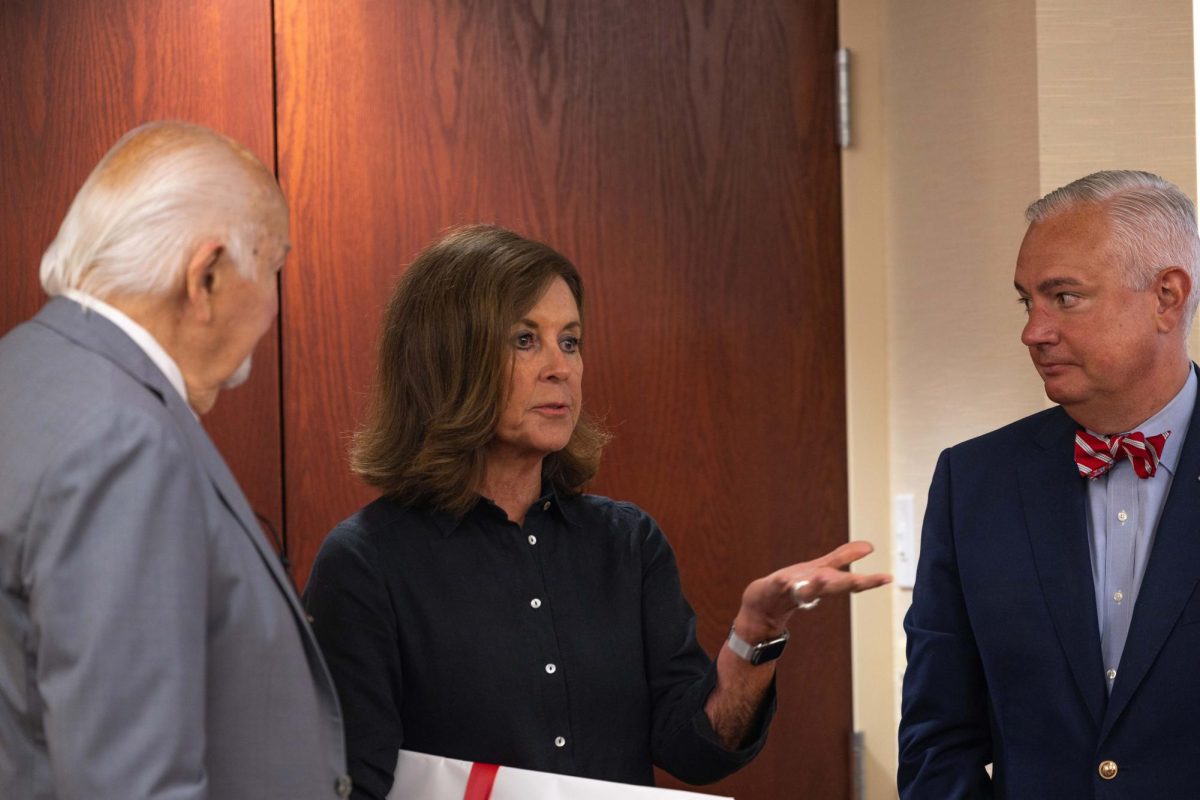
Also shared at the Friday meeting, the regents:
- Approved lease agreements for the land swap of property owned by Holley Performance Products on Russellville Road with property owned by WKU on Nashville Road. Caboni said this will bring more opportunities to the innovation campus.
- Awarded faculty emeritus status to Harold Little, associate professor of accounting. The title of emeritus is given as an honor for retired faculty who have served the university for at least 10 years and have demonstrated a distinguished record of achievement.
- Approved the 2024-2025 internal audit work plan.
- Approved the naming of office suites in the Honors College and International Center after Craig Cobane, the college’s founding director who passed away in May.
News reporter Cameron Shaw can be reached at [email protected].

